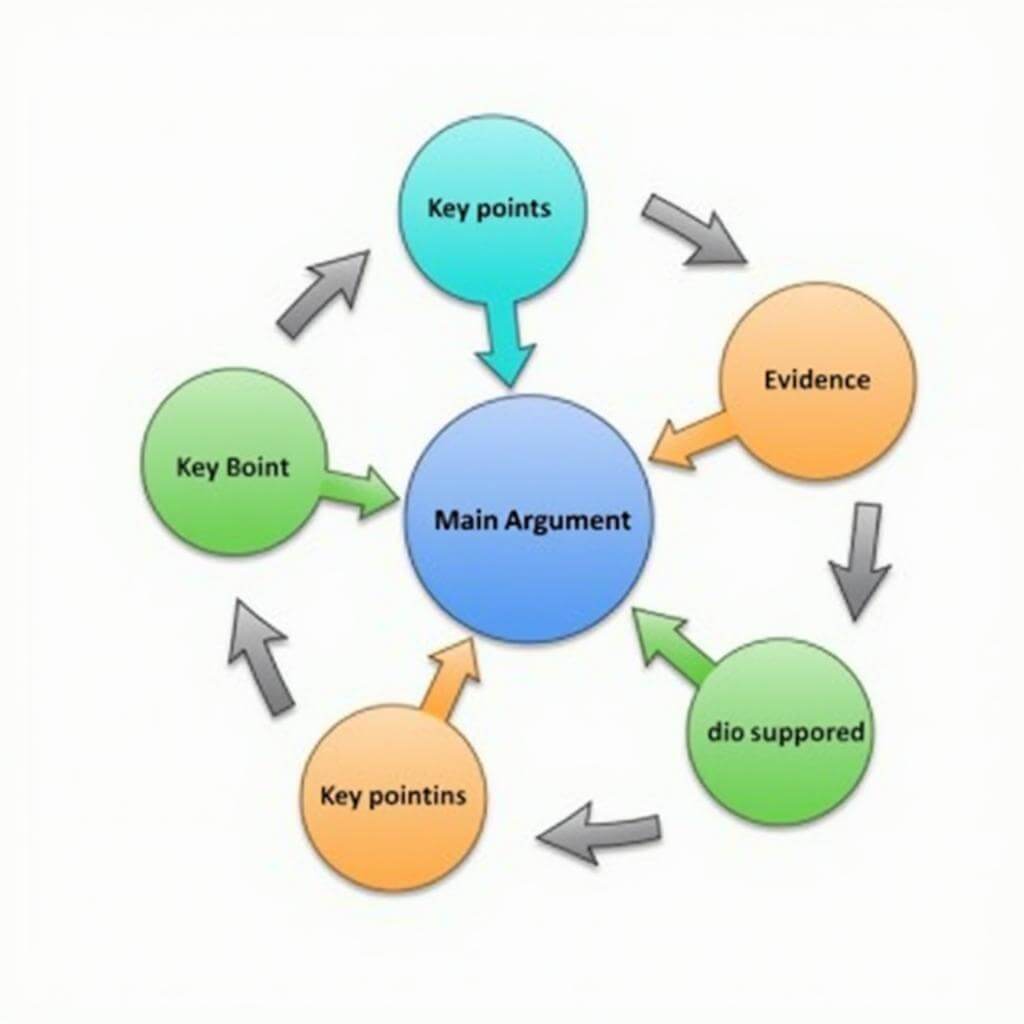Mastering logical flow in IELTS Writing Task 2 is crucial for achieving a high band score. This comprehensive guide will provide you with expert strategies to enhance your essay’s coherence and cohesion, ensuring your ideas are presented clearly and effectively.
Understanding the Importance of Logical Flow in IELTS Writing Task 2
Logical flow refers to the smooth progression of ideas throughout your essay. It’s a key component that examiners look for when assessing your writing skills. A well-structured essay with clear logical connections not only makes your argument more persuasive but also demonstrates your ability to communicate complex ideas in English.
How to improve critical thinking for IELTS writing task 2 is closely linked to enhancing logical flow. By developing your critical thinking skills, you’ll be better equipped to organize your thoughts and present them coherently.
Key Strategies to Improve Logical Flow
1. Plan Your Essay Structure
Before you start writing, take a few minutes to outline your essay. This planning phase is crucial for establishing a logical flow:
- Analyze the question carefully
- Brainstorm main ideas and supporting points
- Organize your thoughts into a clear structure
Dr. Emily Clarke, an IELTS expert with over 15 years of experience, emphasizes: “A well-planned essay is like a roadmap for your reader. It guides them smoothly from one idea to the next, making your argument more compelling and easier to follow.”
2. Use Clear Paragraphing
Effective paragraphing is essential for logical flow:
- Start each paragraph with a clear topic sentence
- Develop one main idea per paragraph
- Use transition sentences to link paragraphs
Remember, each paragraph should build upon the previous one, creating a cohesive argument.
3. Employ Transition Words and Phrases
Transition words and phrases act as bridges between ideas, enhancing the logical flow of your essay. Some examples include:
- To show addition: furthermore, moreover, additionally
- To contrast: however, on the other hand, conversely
- To provide examples: for instance, such as, specifically
- To conclude: in conclusion, to sum up, ultimately
Avoiding overuse of conjunctions is crucial for maintaining a natural flow. Use a variety of transition words to keep your writing dynamic and engaging.

4. Maintain Cohesion Within Paragraphs
To ensure your paragraphs flow logically:
- Use pronouns and referencing words to link sentences
- Ensure each sentence builds on the previous one
- Use parallel structures for similar ideas
5. Develop Clear Topic Sentences
Strong topic sentences are crucial for logical flow:
- Clearly state the main idea of each paragraph
- Ensure the topic sentence relates to your overall argument
- Use the topic sentence to transition from the previous paragraph
6. Practice Logical Reasoning
Improving your logical reasoning skills will naturally enhance the flow of your writing:
- Analyze sample essays to understand their logical structure
- Practice identifying logical fallacies
- Develop your ability to construct sound arguments
IELTS trainer Sarah Thompson notes: “Logical reasoning is the backbone of a well-structured essay. It’s not just about what you say, but how you say it and in what order.”
7. Use Signposting Language
Signposting helps guide the reader through your essay:
- Use phrases like “Firstly,” “Secondly,” “Finally” to indicate the structure
- Employ expressions like “In contrast,” “Similarly,” to show relationships between ideas
- Use “To illustrate this point” or “For example” when providing supporting evidence
8. Ensure Coherence Between Introduction and Conclusion
Your introduction and conclusion should bookend your essay logically:
- Restate your main points in the conclusion, reflecting your introduction
- Show how your argument has developed throughout the essay
- Avoid introducing new ideas in the conclusion
Strategies for improving overall fluency can help you write more naturally, which in turn enhances logical flow.
Common Pitfalls to Avoid
- Jumping between ideas without clear connections
- Overusing transition words, making the essay feel forced
- Including irrelevant information that disrupts the flow
- Neglecting to link paragraphs coherently
- Using overly complex language that obscures your argument
Practicing Logical Flow
To improve your logical flow:
- Analyze high-scoring IELTS essays for their structure and flow
- Practice writing essays with a focus on logical progression
- Get feedback from teachers or peers on the coherence of your writing
- Read extensively in English to internalize logical structures
Mastering punctuation for higher scores is another crucial aspect of improving your writing’s clarity and flow.
Conclusion
Improving logical flow in IELTS Writing Task 2 is a skill that develops with practice and awareness. By implementing these strategies and avoiding common pitfalls, you’ll be well on your way to crafting coherent, well-structured essays that impress IELTS examiners. Remember, a logically flowing essay not only showcases your language skills but also your ability to think critically and communicate effectively in English.
FAQs
-
How can I quickly improve my essay’s logical flow?
Focus on clear paragraph structure, use effective transition words, and ensure each idea logically follows from the previous one. -
Is it necessary to use complex language for better logical flow?
No, clarity is more important. Use language you’re comfortable with to express your ideas clearly and logically. -
How many paragraphs should an IELTS Writing Task 2 essay have for good logical flow?
Typically, a 4-5 paragraph structure works well: introduction, 2-3 body paragraphs, and conclusion. -
Can I use personal examples to improve logical flow?
Yes, personal examples can be effective if they’re relevant and support your argument logically. -
How important is the planning stage for logical flow?
Very important. Spending 5-10 minutes planning can significantly improve your essay’s structure and flow. -
What if I realize my essay lacks logical flow while writing?
Don’t panic. Use transition phrases to bridge gaps and ensure your conclusion ties back to your main points. -
How can I practice improving logical flow outside of writing full essays?
Try outlining arguments for various topics, focusing on the logical progression of ideas. This helps develop your structural thinking skills.